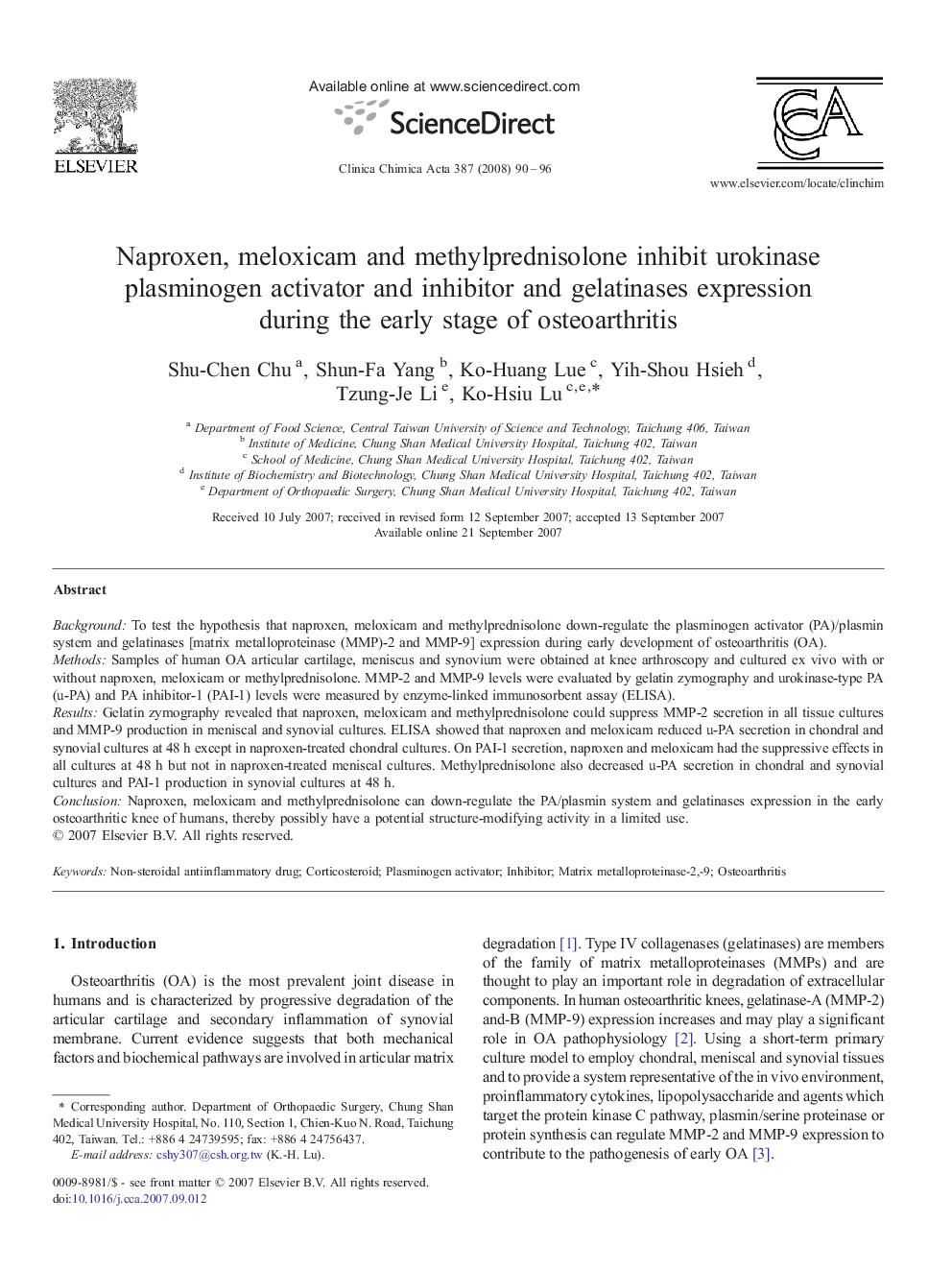| Article ID | Journal | Published Year | Pages | File Type |
|---|---|---|---|---|
| 1967400 | Clinica Chimica Acta | 2008 | 7 Pages |
BackgroundTo test the hypothesis that naproxen, meloxicam and methylprednisolone down-regulate the plasminogen activator (PA)/plasmin system and gelatinases [matrix metalloproteinase (MMP)-2 and MMP-9] expression during early development of osteoarthritis (OA).MethodsSamples of human OA articular cartilage, meniscus and synovium were obtained at knee arthroscopy and cultured ex vivo with or without naproxen, meloxicam or methylprednisolone. MMP-2 and MMP-9 levels were evaluated by gelatin zymography and urokinase-type PA (u-PA) and PA inhibitor-1 (PAI-1) levels were measured by enzyme-linked immunosorbent assay (ELISA).ResultsGelatin zymography revealed that naproxen, meloxicam and methylprednisolone could suppress MMP-2 secretion in all tissue cultures and MMP-9 production in meniscal and synovial cultures. ELISA showed that naproxen and meloxicam reduced u-PA secretion in chondral and synovial cultures at 48 h except in naproxen-treated chondral cultures. On PAI-1 secretion, naproxen and meloxicam had the suppressive effects in all cultures at 48 h but not in naproxen-treated meniscal cultures. Methylprednisolone also decreased u-PA secretion in chondral and synovial cultures and PAI-1 production in synovial cultures at 48 h.ConclusionNaproxen, meloxicam and methylprednisolone can down-regulate the PA/plasmin system and gelatinases expression in the early osteoarthritic knee of humans, thereby possibly have a potential structure-modifying activity in a limited use.
